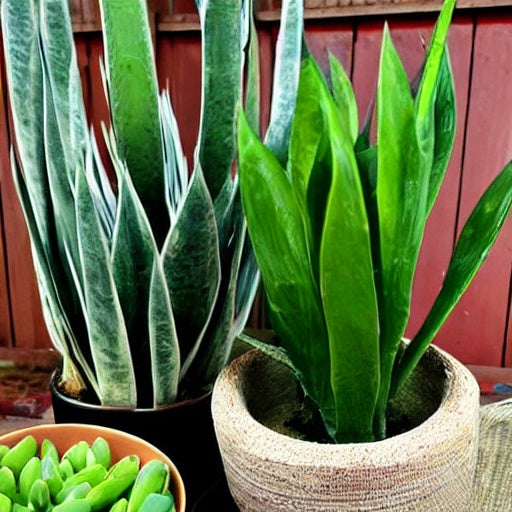
Conquering Scale: Your Guide to Defending Houseplants
Scale insects may not look like typical pests, but they can still cause significant damage. Discover how to identify scale infestations and safeguard your houseplants for their optimal growth.
What Gives My Plant Pests?
Unwanted guests are bound to show up when you bring nature inside with houseplants. Understanding the attraction of pests to your plants is key to effective pest management.
Nature in Your Space:
Houseplants are essentially a piece of nature inside your home. They attract insects as part of their natural ecosystem.
Variability in Susceptibility:
Plant species differ in how vulnerable they are to pests. Certain insects may affect some more than others. Understanding your plant's vulnerabilities helps in early detection.
Infestation Sources: Pests usually find their way into your home through:
Open Doors and Windows:
Bugs can get inside your house when doors and windows are open, especially in warmer months. Installing screens can help mitigate this.
Infested Soil:
Even new plants from reputable sources can carry pests in their soil. Always inspect new plants and consider repotting them with fresh soil.
New Plant Additions:
Regardless of inspection, some pests might still hitch a ride on new plants. Isolating new additions for a while minimizes the risk of infestation spread.
Early detection is crucial.
Identifying early warning signs of a potential pest issue is crucial. Isolating infected plants quickly prevents pests from spreading to healthy plants.
How do scale insects affect your plants?
Scale insects may cause significant damage to your plants, despite their seemingly harmless appearance.
Looks and actions:
Scale insects are often mistaken for small, brown, hardened shells. They feed by attaching themselves to plant stems and leaves, extracting sap. They tend to gather in clusters, which can make them easier to spot.
Damage Symptoms:
Scale infestation often leads to leaves with brown spots. The leaves of an infested plant develop brown spots and appear mottled.
A dull, faded appearance may develop on infested plants, as they lose their formerly brilliant green color.
Yellow leaves, dry and falling off? Could be a big bug problem.
Sticky Residue:
The sticky honeydew residue, made by scale insects, builds up on the undersides of leaves. Sooty mold and ants are both attracted to these leftovers.
Immobilized Adults:
Adult-scale insects are relatively immobile, which can make them easier to manage compared to other pests. However, their protective shells can be a challenge to penetrate.
Tackling Scale: Steps to Freedom
Scale infestations require a systematic approach for effective control.
Pruning:
Start by removing heavily infested or damaged parts of the plant. This not only reduces the population but also enhances the overall health of the plant.
Gentle Removal:
Delicately dislodging scale insects using your fingers can be effective. The goal is to break their attachment to the plant. Take care not to damage the plant during this process.
Rinsing:
A gentle shower of water can help dislodge scale insects from the plant's surfaces. Regular rinsing, preferably weekly, can disrupt their habitat.
Organic Pest Control:
Consider natural solutions for scale insect control:
- Scale insects can be killed with insecticidal soap. It can penetrate their tough exoskeleton. Rub the soap onto the soil, leaves, and stems of the plant, following the manufacturer's directions.
- Try mixing mild dish soap with water as a substitute for strong insecticide soap.. After a little exposure, make sure to rinse it off.
Another natural choice is neem oil mixed with water. Because of its insecticidal characteristics, neem oil can prevent scale insects from reproducing.
Remember that scale infestations may require multiple treatment sessions to ensure complete removal. Young-scale insects can repopulate if not adequately addressed. With patience and consistent care, your plant can recover and thrive once more.



